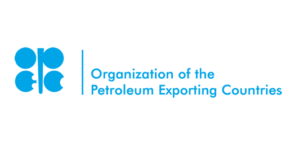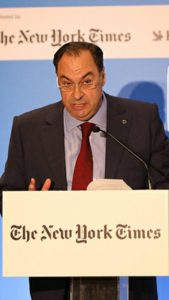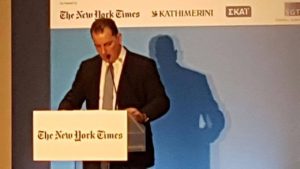Singing the praises of an oft-slighted OPEC, World Energy Council chief gives his thoughts


In September 2010, the Organization of the Petroleum Exporting Countries (OPEC) marked its 50th anniversary, but most of the world’s leading social, economic and environmental bodies did not join in the celebrations.
The milestone provided what should have been a fitting backdrop for recognition of the very real accomplishments of OPEC’s past and present and the role it is likely to play in the future. The organization’s resources and policies have evolved to the point where it is now an indispensable partner on multiple levels: its determination to maintain security of supply contributes to world economic stability, its dominant position in the energy industry gives it vital influence over measures to protect the environment, and closer coordination with it could help multilateral institutions to better serve human development around the globe.
Despite all that OPEC has done on these and other fronts, the organization’s contributions remain largely unheralded. The mainstream media typically dismisses the group as a crude (in both senses of the word) cartel. This unflattering assessment is broadly shared by everyone from individual consumers of oil products to the heads of states and major corporations.
OPEC’s image problems may stem from its own public relations. For far too long, the organization and its members have been both loath to accept blame for mistakes and, bizarrely, unwilling to trumpet successes. The result was a familiar one to anyone who studies the contemporary Arab world: those who refuse to define themselves are instead defined by various — often hostile — others.
An unfair reputation
OPEC was founded with the overall aim of liberating its member countries’ hydrocarbon assets from foreign domination, thereby making more of the proceeds from their sale available for promoting economic development, providing better education and healthcare for their populations and sharing the wealth with less fortunate peoples.
Admittedly, not all or even most of the organization’s member states have consistently pursued these goals with sufficient rigor. We all know the reputation of the “oil sheikh”, the spoiled prince who squanders millions on a luxurious lifestyle. For decades there was more than a grain of truth to the stereotype.
But it is not within OPEC’s purview to impose standards on the governance of sovereign member states or on the personal behavior of their rulers; its primary task, again, is to help them make more money from their primary natural resource, and in this it has succeeded beyond anyone’s expectations.
Recent years have witnessed a marked improvement in the handling of energy wealth, a fact demonstrated by the proliferation of massive development and infrastructure projects, tremendous improvements in areas such as education and healthcare, and by the gargantuan holdings accumulated by some countries’ sovereign wealth funds — Abu Dhabi’s alone, according to some estimates, is thought to control assets in the range of $1 trillion.
In addition, as the oil trade has matured, OPEC has sought to fulfill a regulatory function when possible and to ensure flows of supply and transparency in the petroleum trading system. Its efforts on these fronts flow through numerous channels, including its central role in the International Energy Forum and its support for the Joint Oil Data Initiative.
It undertakes these endeavors despite the risks attached to the heavy investments necessary to ensure the robustness and readiness of the entire supply chain. The maintenance of price levels that justify the running of such risks is a major reason why the world’s economies always have access to the fuel they need. And as OPEC frequently stresses, the sky-high rates for hydrocarbon products in many countries have little to do with its own practices.
Instead, they often stem from factors entirely outside OPEC’s control, including taxes levied in affluent consumer nations, the expansive profit margins of major oil companies based in several of the same countries, speculators who operate there and — it has to be said — the politico-military policies pursued by some Western governments in and around the world’s principal oil-producing region, the Middle East.
Despite OPEC efforts, global energy markets have suffered periodically from a lack of cooperation between the producing nations and the consuming ones, to the detriment of both, but at the same time it is OPEC who has actually done something to alleviate the repercussions of poor cooperation.
Far from being a one-trick pony concerned solely with its own commercial interests, OPEC increasingly attends to the long-term welfare of the consumer nations by, among other things, working for the development of an effective and coordinated energy framework and enabling exchanges on petroleum issues of common interest.
In the past two years, with much of the world economy suffering the after-effects of the global financial crisis, OPEC also was instrumental in limiting the damage and fueling the recovery: it raised output to keep prices reasonable, availed itself of existing spare capacity and accelerated programs for capacity expansion in order to discourage speculation and was always there to facilitate dialogue and cooperation.
After displacing the major international oil companies as the primary determinant of crude production, OPEC and its member states have become key players on the global economic stage. The organization is now a crucial interlocutor with bodies like the G8, the G20, and the European Commission, and it has begun to participate in efforts to combat poverty and environmental degradation.
Oil aid
Across the developing world, the OPEC Fund for International Development (OFID) uses its resources to provide significant financial and other resources to support social and economic projects and to ensure affordable energy prices for the poor. All told, the agency pledged more than $500 million in grants and soft loans over the past year. The scope of these funds ranges from the battle against HIV/AIDS to improving supplies of clean water to emergency humanitarian relief.
As of October 2010, OFID’s cumulative commitments to provide easy credit for public sector entities in less developed countries had reached almost $9 billion, more than $5.4 billion of which had already been disbursed.
On top of this, recent years have also seen OPEC get serious about protecting the environment. As climate change and other green issues have gained their rightful spot on the global agenda, the organization has begun to do its part.
In 2010 alone, for instance, OFID earmarked support for a variety of environmental causes, including grants for the International Conference on Food Security and Climate Change in Dry Areas in Amman, the 3rd Annual Conference of the Arab Forum for Environment and Development in Beirut, organic agriculture training in East Africa and an effort by Green Globe to train 300 campaigners tasked with raising awareness of environmental issues.
While accepting that the global energy mix will change in the coming decades, OPEC has been instrumental in supporting research aimed at reducing emissions in the here and now, especially carbon capture and sequestration technologies pioneered at the In Salah operation in central Algeria. It also has adopted active roles in multilateral groupings, including the World Bank’s Global Gas Flaring Reduction Partnership, as well as the International Energy Agency’s Greenhouse Gas Research and Development Program.
For the positive socioeconomic influences it exerts on today’s world, and for all of the prescient preparations it has begun to make for tomorrow’s — including measures to mitigate the effects of its members’ lifeblood — the group deserves some credit. Provided it gets better at explaining itself, it might even receive a few long-overdue cheers when its Diamond Anniversary rolls around in 2020.



